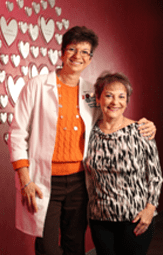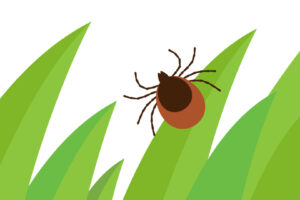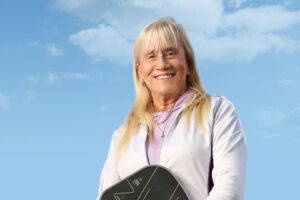Feeling in the peak of health, 65-year-old Louise Cassar of Jackson visited her primary care physician in early February 2013 for her annual physical exam. To her surprise, the electrocardiogram (EKG), a routine part of the exam, revealed a slight abnormality. Despite Louise having had no symptoms that would indicate a cardiac problem, her physician advised that she take this finding to a cardiologist anyway.
 Coincidentally, CentraState was hosting a grand opening for the Gloria Saker Women’s Heart Program at CentraState, a program designed to identify women who are at risk for cardiovascular disease and modify those risk factors that are preventable. Heart disease remains the single largest health threat for women in the United States, and the challenge of getting women evaluated for cardiac health risks persists.
Coincidentally, CentraState was hosting a grand opening for the Gloria Saker Women’s Heart Program at CentraState, a program designed to identify women who are at risk for cardiovascular disease and modify those risk factors that are preventable. Heart disease remains the single largest health threat for women in the United States, and the challenge of getting women evaluated for cardiac health risks persists.
The Women’s Heart Program takes an innovative approach to this challenge by offering an inviting setting with practitioners who are acutely aware of the different cardiovascular symptoms of women. Drawn by the promise of female cardiologists, Louise headed directly to the Women’s Heart Program. The expediency with which she did so may have saved her life.
Sangeeta Garg, MD, board-certified interventional cardiologist, on staff at CentraState, and Women’s Heart Program medical director, found Louise’s combination of a slightly abnormal EKG, high cholesterol that was only intermittently managed by medication, and a strong family history of cardiac irregularities of some concern. However, Louise presented no symptoms, other than one recent episode of car sickness. After weighing the factors, Dr. Garg chose to have Louise tested further.
On site, the staff conducted a nuclear stress test and an echocardiogram, with startling results. A large cardiac artery appeared to be severely blocked. A heart attack was possible, surprising both Louise and Dr. Garg.
Dr. Garg quickly arranged for Louise to be transferred to an appropriate heart center to have a coronary angioplasty, a procedure where her clogged artery would be opened and a stent, a small wire mesh tube, placed to keep the artery open. The procedure revealed an almost total occlusion, or blockage, in the artery. “It’s very unusual for someone to have that severe of a blockage and to have no symptoms. That’s why we were so surprised,” Dr. Garg reports.
Her heart had been severely weakened by the blockage, which could have progressed to heart failure. “Once an artery is blocked 100 percent, the heart tissue dies,” Dr. Garg explains.
There was some blood flow from Louise’s collateral arteries, however, preventing Louise from losing heart function. The coronary angioplasty went as planned, and Louise returned home the following day, grateful to both her primary care physician and the Women’s Heart Program for their diligence and compassion.
After recovering from her procedure, Louise returned at set intervals to the Women’s Heart Program for follow-up. Ellen Ciacciarelli, RN, and former nurse practitioner for the program, reports that Louise was provided with a medication regime, cardiac rehabilitation, and modifications to her diet. “Louise has been an amazing patient, insofar as she has lost weight and inches at her waist line, her cholesterol numbers are better, and she is feeling better,” Ciacciarelli says. ”Her initial visit to her primary care physician and her decision to come to the center may have saved her life.”
Louise takes comfort in the regular checkups she receives through the Program. “Just knowing that they’re watching gives me peace of mind,” Louise says. “I’m very grateful to the Women’s Heart Program.” To her delight, her most recent EKG was normal.
Upon completing cardiac rehab, Louise started a Step-Up program through CentraState’s Fitness and Wellness Center. “I watch what I eat now,” Louise reports. “I take medications that I never took before, and I’m trying to work out 2-3 times a week. On the days that I don’t work out, I’m trying to walk 2-3 miles per day. I didn’t do any of this prior to this discovery.”
Louise credits the Women’s Heart Program with helping her through a frightening but ultimately successful ordeal. “I think it’s just talking to a woman that makes you feel better,” Louise says. “They really listen to you there.”
Ciacciarelli acknowledges the importance of a comforting setting when she comments, “We have the ability to initially evaluate women in a very comfortable environment with an all-female staff,” she says. “Most testing is done in the Star and Barry Tobias Ambulatory Campus, so women have already established a relationship with us and feel more comfortable coming back in.”
One result of her frightening cardiac experience is that Louise has become a one-woman campaign for women’s cardiac health as well as the Women’s Heart Program. Her daughters have now given up smoking, and they’re planning to get evaluated through the Program. Additionally, Louise is urging her friends to find their way there. “I’m having lunch today with some women who are younger than me. I plan to stress to them to go get a cardiac checkup; go to the Women’s Heart Program. I will tell them, “You just never know.”





